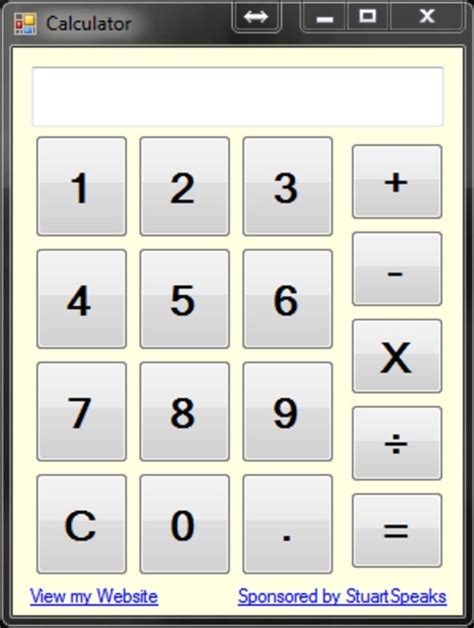Performing simple calculations is a task that many of us need to do on a daily basis. While high-tech calculators and digital tools are available, there are also several low-tech options that can be effective and convenient. In this article, we'll explore some low-tech calculator options for simple calculations, their benefits, and how they can be used in different situations.
Benefits of Low-Tech Calculators
Low-tech calculators offer several benefits that make them a popular choice for simple calculations. Here are some of the advantages of using low-tech calculators:
- Simplicity: Low-tech calculators are easy to use and understand, even for those who are not familiar with technology.
- Portability: Many low-tech calculators are small and portable, making them easy to carry around.
- Affordability: Low-tech calculators are often inexpensive and can be found at a low cost.
- No Battery Required: Some low-tech calculators, such as abacuses and slide rules, do not require batteries, making them a reliable option.

Types of Low-Tech Calculators
There are several types of low-tech calculators that can be used for simple calculations. Here are some examples:
- Abacus: An abacus is a manual calculator that uses beads or counters to perform calculations. It is a simple and effective tool for basic arithmetic operations.
- Slide Rule: A slide rule is a mechanical calculator that uses logarithmic scales to perform calculations. It is commonly used for multiplication and division.
- Napier's Bones: Napier's bones are a set of rods with numbers inscribed on them that can be used to perform multiplication and division.
- Counting Blocks: Counting blocks are physical blocks with numbers on them that can be used to perform basic arithmetic operations.
How to Use Low-Tech Calculators
Using low-tech calculators requires some basic knowledge of arithmetic operations and how to use the device. Here are some steps to get started:
- Abacus: To use an abacus, start by setting the beads to zero. Then, perform the calculation by moving the beads according to the arithmetic operation. For example, to add 2 + 3, move 2 beads on the first row and 3 beads on the second row.
- Slide Rule: To use a slide rule, start by setting the cursor to the number you want to calculate. Then, move the slide to the desired operation and read the result.
- Napier's Bones: To use Napier's bones, start by selecting the rods with the numbers you want to calculate. Then, perform the calculation by multiplying or dividing the numbers on the rods.

Real-World Applications of Low-Tech Calculators
Low-tech calculators have several real-world applications, including:
- Education: Low-tech calculators can be used to teach basic arithmetic operations and help students understand the concept of numbers.
- Business: Low-tech calculators can be used for simple calculations, such as calculating change or totaling bills.
- Everyday Life: Low-tech calculators can be used for everyday calculations, such as calculating the cost of groceries or measuring ingredients for cooking.
Comparison of Low-Tech Calculators
Here's a comparison of some popular low-tech calculators:
- Abacus:
- Pros: Simple, portable, and affordable.
- Cons: Limited functionality and can be time-consuming.
- Slide Rule:
- Pros: Can perform complex calculations, such as multiplication and division.
- Cons: Can be difficult to use and requires practice.
- Napier's Bones:
- Pros: Can perform multiplication and division, and is relatively easy to use.
- Cons: Limited functionality and can be bulky.

Conclusion
Low-tech calculators are a great option for simple calculations and offer several benefits, including simplicity, portability, and affordability. By understanding how to use these devices and their real-world applications, you can make the most of low-tech calculators and perform calculations with ease.
We hope you found this article helpful in understanding the benefits and uses of low-tech calculators. Whether you're a student, business owner, or just someone who needs to perform simple calculations, low-tech calculators are a great option.






What is a low-tech calculator?
+A low-tech calculator is a device that uses manual or mechanical means to perform calculations, such as an abacus or slide rule.
What are the benefits of using a low-tech calculator?
+The benefits of using a low-tech calculator include simplicity, portability, and affordability.
How do I use a low-tech calculator?
+To use a low-tech calculator, start by understanding the basic arithmetic operations and how to use the device. Then, perform the calculation by following the instructions for the specific device.
